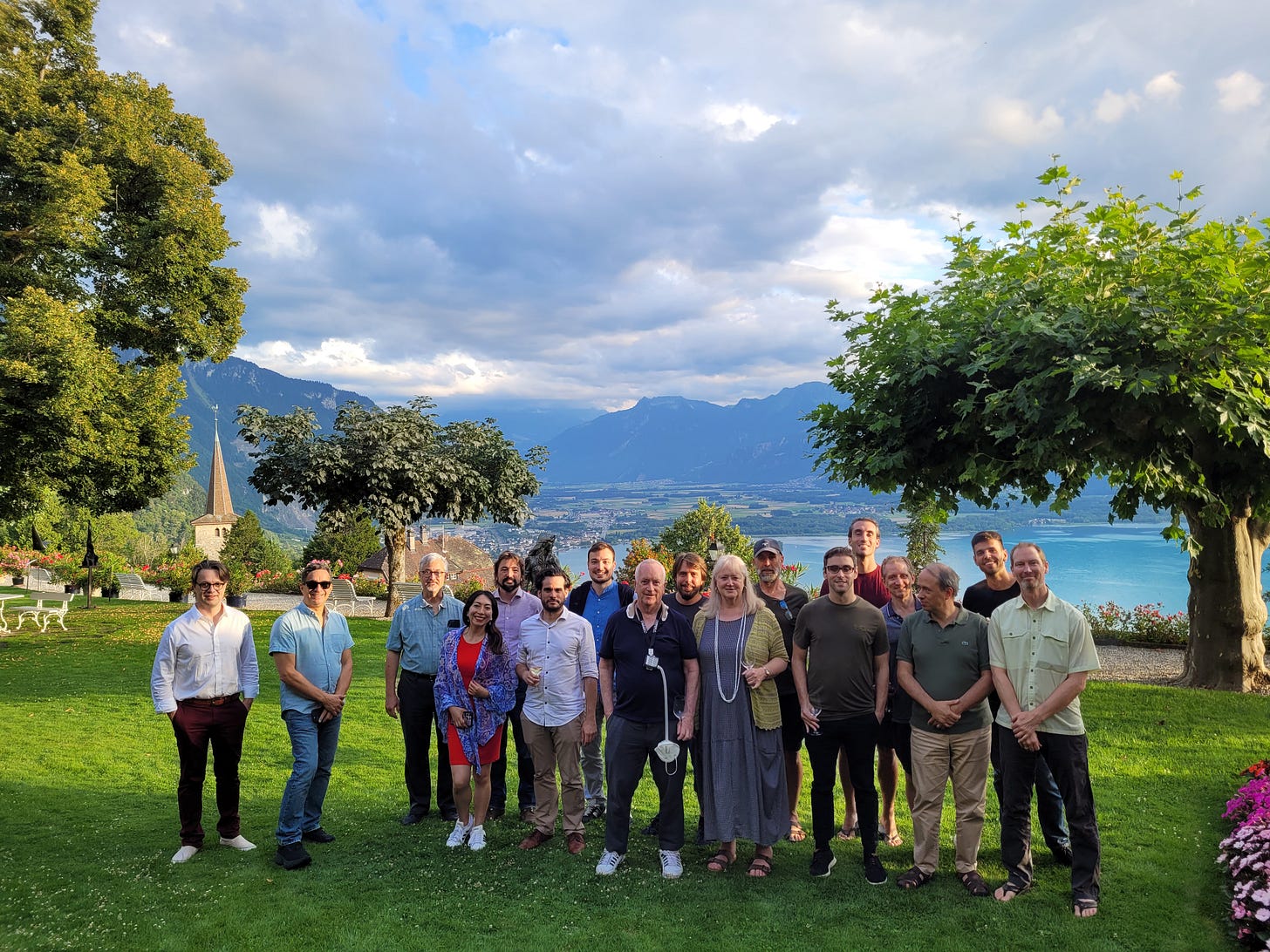I'm here with the crew assembled below, to exchange ideas on how to properly include energy in economics, as a prelude to modelling the transition to a carbon-free energy system. Whether that transition happens, or is even feasible, is secondary to being able to model it in the first place, as a hypothetical process. Mainstream Neoclassical economics is completely oblivious, not only to that issue, but to the very role of energy in production (see my paper with Bob Ayres and Russell Standish, "A Note on the Role of Energy in Production").
The organiser of this event is at the far right of the photograph (though not the political spectrum!): Carey King. Carey is the developer of the HARMONEY model, a non-Neoclassical model that incorporates both money and energy. Carey explains HARMONEY in this open-access paper:
King, C. W. (2021). "Interdependence of Growth, Structure, Size and Resource Consumption During an Economic Growth Cycle." Biophysical Economics and Sustainability 7(1): 1.
Carey received funding from a Texas-based philanthropic organization to bring this group of modelers and researchers together to brainstorm on energy and economics. It's been a real pleasure to take part.
I'm giving my talk this morning--which I can’t attach to this post given Substack’s file size limits, but you can find it here on Patreon (https://www.patreon.com/posts/108778014)--after which I'm heading back to Amsterdam to work with Matheus Grasselli--who is at the far left of the photo--on a joint paper with the atmospheric physicist Tim Garrett. We have previously worked as a team to develop Tim's thermodynamics-based model of economics, and also to extend Goodwin's growth cycle model (references below) to include both energy and energy and matter. Tim has come up with a brilliant new draft paper and we'll try to complete it over the next 3 days.
That's only a fraction of my workload this month, which has included launching Ravel as a commercial program (see https://www.patreon.com/ravelation ), and working on a draft paper on the economics of climate change for a conference at Nordhaus's university of Yale in November. Given that workload, I've been rather inactive on Patreon and Substack, but these are the activities that I could not do without your support.
I'll leave it at that for now, given that breakfast begins in under 30 minutes and we also have to check out of this hotel before the final seminar session this morning. But I'll follow up with a longer post once I have a bit more time during August.
Goodwin, R. M. 1966, "Cycles and Growth: A growth cycle." Econometrica 34, p. 46; and 1967, "A growth cycle". Socialism, Capitalism and Economic Growth. C. H. Feinstein. Cambridge, Cambridge University Press: pp.54-58




